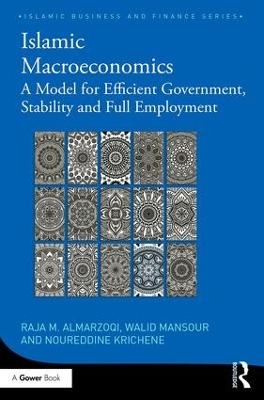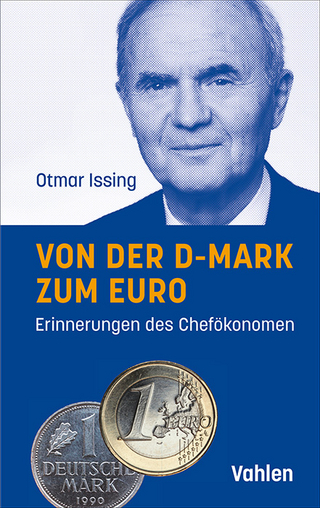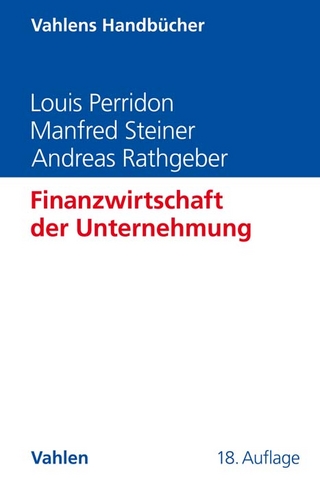
Islamic Macroeconomics
Routledge (Verlag)
978-1-138-10648-2 (ISBN)
This book is essential reading for students and academics of Islamic economics and finance, economists, practitioners, and researchers.
Dr. Raja M. Almarzoqi was Advisor at the International Monetary Fund, a faculty member at the Institute of Diplomatic Studies, an Adjunct Professor at Thunderbird Global Business School and King Saud University, Saudi Arabia, a consultant to a number of financial institutions and governments, and a board member of several funds. He has been a conference speaker and writer on a wide range of topics in economics, including Islamic economics. Dr. Walid Mansour is an Advisor at the Saudi Arabian Monetary Authority. He was Associate Professor of Islamic finance at King Abdulaziz University, Saudi Arabia. He was a research and teaching affiliate at the College of Liberal Arts & Sciences (Kansas University), USA. He has published several articles in internationally refereed journals in various areas, including Islamic finance, corporate finance, and Islamic financial product development. Dr. Noureddine Krichene was an Economist with the International Monetary Fund, Advisor at the Islamic Development Bank in Saudi Arabia, and Professor of Islamic Finance at INCEIF, Malaysia. He received his PhD in Economics from the University of California, Los Angeles, USA. He is the author of Islamic Capital Markets: Theory and Practice.
List of figures List of tables Preface Acknowledgments 1. Nature and dangers of statism 2. The government from a Sharia perspective 3. Sharia free market model 4. Zakat: A mandatory redistributive principle of a Sharia model 5. Fiscal policy from a Sharia perspective 6. Nature of money in Sharia 7. On the nature of inflationary financing 8. On the nature of financial repression 9. Sharia banking and capital markets sector 10. A fully liberalized labor market 11. Sharia free trade and foreign exchange policy 12. Growth policy and private sector development Conclusions Index
| Erscheinungsdatum | 30.09.2017 |
|---|---|
| Reihe/Serie | Islamic Business and Finance Series |
| Zusatzinfo | 19 Tables, black and white; 20 Line drawings, black and white; 20 Illustrations, black and white |
| Verlagsort | London |
| Sprache | englisch |
| Maße | 156 x 234 mm |
| Gewicht | 476 g |
| Themenwelt | Sozialwissenschaften ► Soziologie ► Spezielle Soziologien |
| Wirtschaft ► Betriebswirtschaft / Management ► Finanzierung | |
| Wirtschaft ► Betriebswirtschaft / Management ► Rechnungswesen / Bilanzen | |
| Betriebswirtschaft / Management ► Spezielle Betriebswirtschaftslehre ► Bankbetriebslehre | |
| Wirtschaft ► Volkswirtschaftslehre ► Makroökonomie | |
| ISBN-10 | 1-138-10648-8 / 1138106488 |
| ISBN-13 | 978-1-138-10648-2 / 9781138106482 |
| Zustand | Neuware |
| Informationen gemäß Produktsicherheitsverordnung (GPSR) | |
| Haben Sie eine Frage zum Produkt? |
aus dem Bereich


